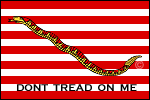How a US Naval Ship Stays Afloat
From DC1 Bowden:
Many a person has asked me in my 10 years “How does all that steel float?”. Typically my answer would be short and sweet. Compartmentation! However this time I want to expand and give credit where credit is due.
There is a team of special individuals that we call Damage Control Petty Officers or DCPO for short. These DCPOs are the reason we stay afloat when all hell breaks loose. An example is the USS COLE.
Had it not been for the DCPOs the USS COLE would be sitting at the bottom of the sea. Yes, it is true, that many a crew member ran from compartment to compartment closing hatches and scuttles here and there and dogging doors down to prevent the sea from flooding the ship. But who was it that allowed those hatches, scuttles and doors to work in this ships time of need? It was then men and women that maintain them, and they are the DCPOs.
So, who are the DCPOs? They are people who normally work for all the different divisions on the ship. They are the Gunners Mates, Enginemen, Culinary Specialist, Electronics Technicians, Personnel Specialist just to name a few.
What do they do?
They perform maintenance on doors, hatches, scuttles, and deck drains to ensure the ship stays watertight. They ensure that the portable fire fighting equipment is on station and that it will work correctly when needed. They clean ventilation to ensure fire will not spread through it and that the crew breathes clean air. They work on air conditioning units (see eye candy for sailors part 10) to verify that they are working at optimal capacity for when the ship gets hot. They inspect compartments for signs of rust, (a ships worst enemy if ever there was) wear, and any abnormality that could threaten the ships survival. They verify every morning and every night that the prescribed material condition of readiness is set and any discrepancy is noted. They ensure that emergency lighting works and will show the way should the ship every go dark. They ensure that emergency breathing devices are in place, accessible, and will function properly if ever needed. After that they go back to their own division and carry out any additional work they might be assigned.
DCPOs work long and tirelessly, on countless pieces of equipment, to ensure the ship and its crew are given the best chance at survival, should she ever be put in the situation the USS COLE found herself in.
It’s not until we find ourselves in an emergency that we realize the importance of the work the DCPO does. So, when we sail back into homeport, with a broom high upon the mast, know that it is because the DCPOs kept the ship water tight and the emergency equipment was on station and in working order.



11 comments:
Training and drills! One of the many things I learned in the Navy is that an ounce of prevention is worth a pound cure.
Keep up the good work.
As ever, fair winds and following seas!
Nice to see the DC types getting some action here, DC1. Well struck. A retired DCCS.
R/Lee
Thank you, Lt. Cmdr., for sharing with us at home not only life in the Navy but the importance of team work and how each and every job on board is important.
Everyone one of you has the gratitude and support of this Canadian.
May God continue to bless you all.
Great post, DC1... as a contractor working onboard, I've seen the drills and things that you guys do on a daily basis to keep the ship going. You guys do a lot of work and I'm glad illustrated how important DC's are!
What happened to the blog counter? I have been keeping track on a daily basis. You get a good 1,000 visitors a day by the way.
The counter's back; we decided we like it, too.
DC1 - Thank you for telling us about the important DCPO's.
Is that a collateral duty assignment for them? You mentioned that they are members of a number of different rates including GM, EN, CS, ET, and PS.
Do they all get a special school to learn this important component of their trade?
(Former submariner wanting to learn more about surface operations so I can understand what my daughter does for a living.)
Fun and informative reading. Great stuff.
That used to be the job of the HTs.
Who does the welding and parts repair that requires lathe and grinding type work?
Great job DCPO and everyone on the USS Russell. Stay safe out there:..God bless you all.mb
DC1 says,
These individuals volunteer for this challenging collateral duty. Part of the challenge is most DCPOs only serve for 6 months at a time. The fact that there is no school or special training is the other part of the challenge. At this time we require the DCPOs to complete a computer course and all applicable Personal Qualification Standards(PQS).
Post a Comment